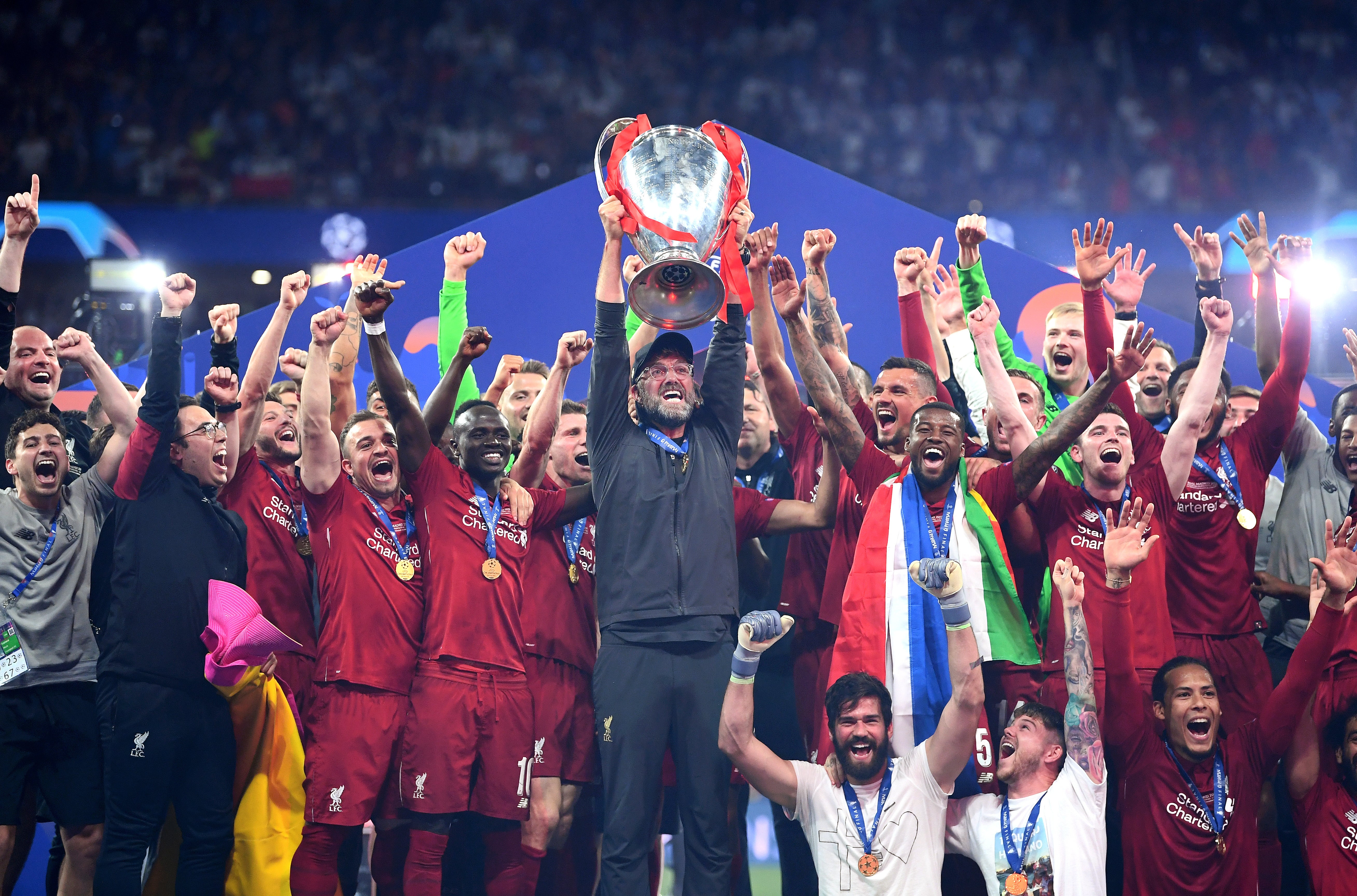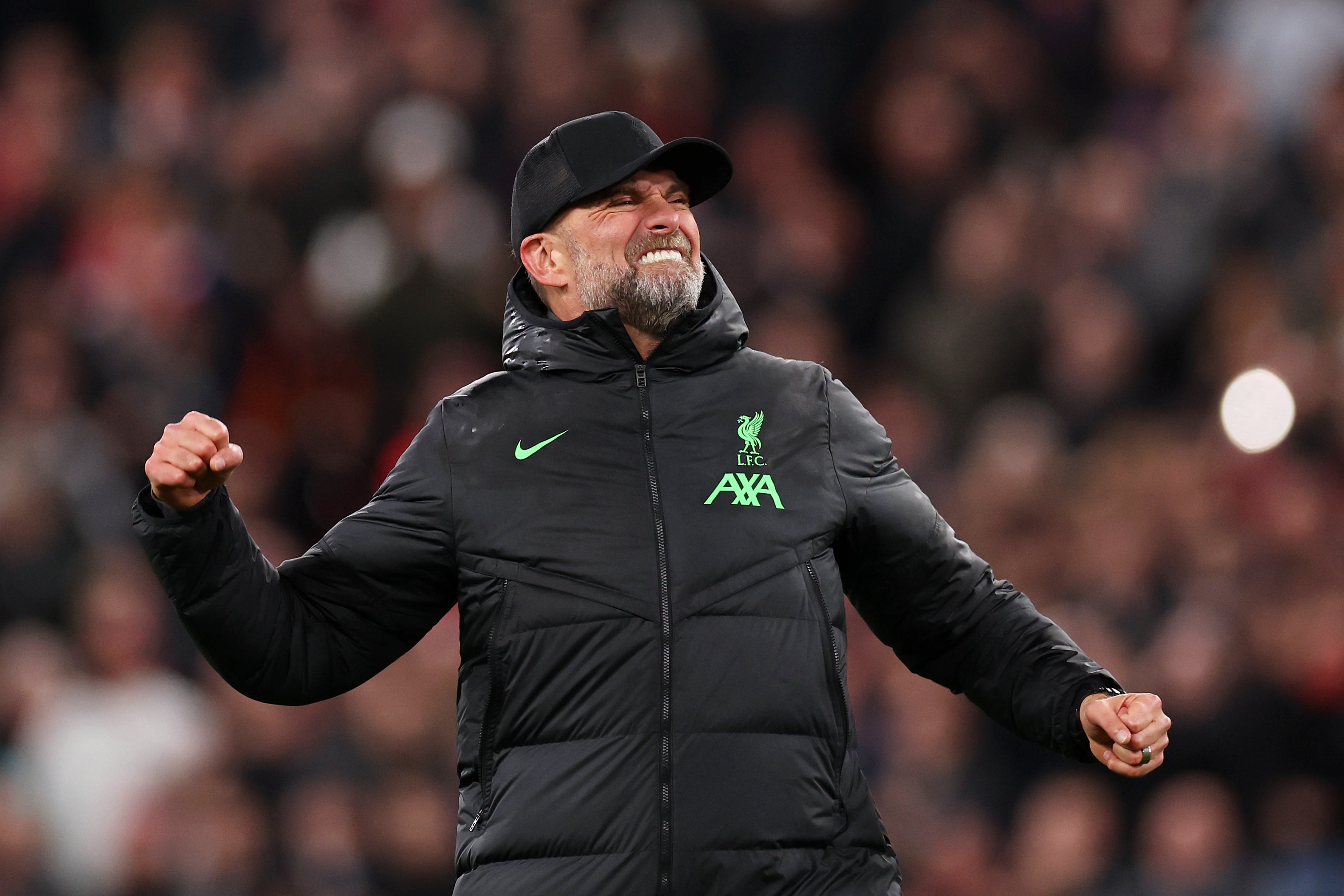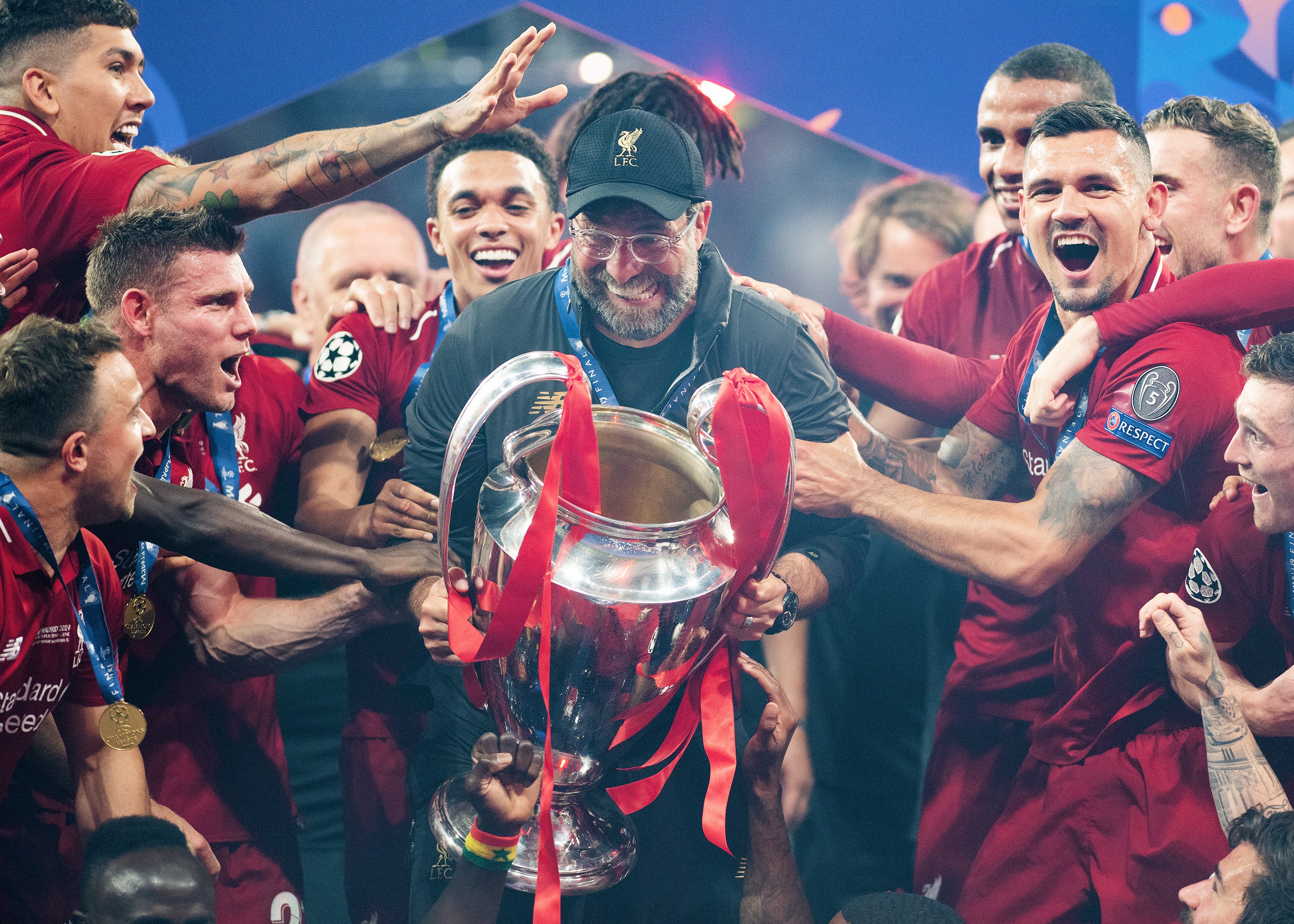Europa League just part of the journey - Jurgen Klopp restored Liverpool to Europe’s elite
The Reds were at risk of being a yesteryear club on the continent but could soon reach a fifth Uefa final in nine years

Jurgen Klopp has a tendency to mythologise, to both create and burnish a legend. His skill set has rarely seemed to include search-engine algorithms but in 2018 he declared: “If you had Google and put in ‘European nights’ the answer must be: Anfield. That’s really cool.” He is almost right. Google “great European nights” and Anfield features prominently. That is part of Klopp’s legacy.
There may only be two European nights left at Anfield for him; perhaps Atalanta on Thursday will prove the last, with no semi-final against Benfica or Marseille to follow. There may be no more that cross the barrier into greatness. And yet Klopp will leave Liverpool as the manager who restored the unforgettable European evenings to their fixture list. As with much else he has done at Anfield, he took a historic institution, updated it, added his personal touch, and made Liverpool seem the place to be again.
Which it wasn’t when he joined in 2015. His Anfield bow was a 1-1 draw against Rubin Kazan. In the five years before his appointment, the closest thing Anfield had to a wonderful European night was a Steven Gerrard-inspired turnaround against Napoli. But even that came in a Europa League group-stage game under Roy Hodgson. There was the danger that Rafa Benitez’s 4-0 hammering of Real Madrid in 2009 would remain the last in a long line; that tales of Saint Etienne and Olympiacos and Chelsea and Internazionale and Bruges would have to be retold with ever more lashings of nostalgia.

That Klopp bought into Liverpool’s past was apparent early on. He invoked Istanbul at half-time in the quarter-final second leg against Borussia Dortmund in 2016. Two-nil down, his Liverpool staged their own seminal comeback, though it was to prove not their most famous.
The 2-0 blitz of Manchester United in the previous round was the first sign that Anfield had recaptured its magical properties under the lights and in continental competition. Like Benitez before him, Klopp was to get a couple of his defining European victories at the expense of other English clubs, but they were European nights nonetheless.
It is worth remembering, too, that by 2017-18, Liverpool had not played a Champions League knockout tie since 2009. They could have been an English equivalent of Ajax or Benfica: still prominent on the all-time leaderboard, but an anachronism, distanced by the best. Instead, Klopp turned them into a club that reached three Champions League finals in five seasons; perhaps five European finals in nine.
Each statistic bears comparison with Liverpool’s heyday, though with the fundamental difference that Klopp has a lone Champions League to show for it, whereas between 1973 and 1984 Liverpool won two Uefa Cups and then four European Cup finals.
But with Klopp, it was always about the journey as well as the destination, the memories more than the medals. The 2017-18 campaign brought two spectacular examples of Klopp’s capacity to destroy teams in bursts of high-speed attacking: Manchester City conceded three goals in 19 minutes of a quarter-final at Anfield, Roma five in 35 in a semi-final. That seven of those eight goals were scored by Mohamed Salah, Sadio Mane and Roberto Firmino was no coincidence: they will forever remain the definitive Klopp forward line.

And yet 2018-19’s great European nights were shaped as much by others: by Alisson Becker, with his injury-time save from Napoli’s Arkadiusz Milik to secure progress from the group; by Gini Wijnaldum, Trent Alexander-Arnold and Divock Origi. Because identifying the best of Klopp’s 483 games with Liverpool and indeed the best of Anfield’s six decades of European matches is actually a relatively simple task.
It comes down to one name: Barcelona.
Three-nil down to Lionel Messi and co after the semi-final first leg at the Nou Camp, without Salah and Firmino, the synergy of Klopp and Anfield forged a belief that the impossible was possible, until it became actual. A few weeks later, Liverpool became champions of Europe for a sixth time.
Barcelona remains the permanent reference point, the ultimate. And if it means some of Klopp’s other European glories can be overshadowed – two Anfield semi-final wins over Villarreal or five-goal thrillers against AC Milan and Paris Saint-Germain figure lower down the list than might otherwise be the case – it is worth noting that there are plenty to choose from. Under Klopp, Liverpool have won 31 of 42 home European games, often emphatically. Their four defeats nonetheless mean he has lost a higher ratio of home European than domestic games; the 5-2 to Real Madrid last season was a taste of their own medicine. It was a reverse of the 2018 scoreline against Roma, a game when Real scored five times in 46 minutes.
Across Klopp’s reign, many of Liverpool’s finest European results have actually come away from home: winning 3-1 against Bayern in Munich, 2-0 over Inter in the San Siro, demolishing Rangers 7-1 at Ibrox; in the 2021-22 group stages, Liverpool won away at AC Milan, Atletico Madrid and Porto. Each was admirable, a further indication Klopp has restored Liverpool to the European elite. In that respect, it is unfortunate that Klopp bows out in the Europa League, not the Champions League. But he goes having put Anfield back on the European map.
Join our commenting forum
Join thought-provoking conversations, follow other Independent readers and see their replies
Comments
Bookmark popover
Removed from bookmarks